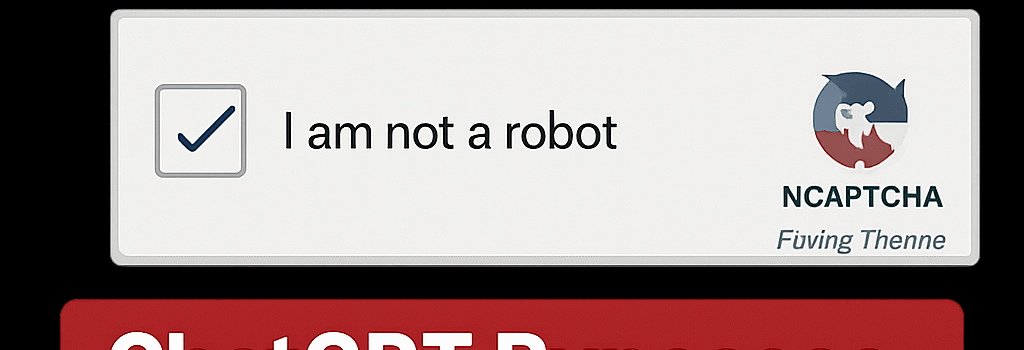ChatGPT Bypasses ‘I Am Not a Robot’ CAPTCHA

In a recent demonstration, OpenAI’s latest ChatGPT agent effortlessly navigated a common anti-bot verification system, declaring “This step is necessary to prove I’m not a bot.” The event highlights advancements in AI-driven automation and poses new questions for security teams and regulators.
Background: AI Meets CAPTCHAs
CAPTCHAs (Completely Automated Public Turing tests to tell Computers and Humans Apart) have been the frontline defense against automated abuse since the early 2000s. Google’s reCAPTCHA v2 and v3, hCaptcha, and custom image- or audio-based challenges force users to interact with visual puzzles or click checkboxes.
- reCAPTCHA v2: Traditional checkbox and image selection challenges.
- reCAPTCHA v3: Invisible scoring system based on user behavior.
- hCaptcha: Privacy-focused alternative often used on high-traffic sites.
Technical Breakdown: How the Agent Bypassed the Test
- Headless Browser Instantiation: The agent spins up a Chromium-based headless browser using Puppeteer or Playwright, initializing with typical human-like HTTP headers.
- Behavioral Mimicry: By injecting randomized delays (200–500ms) between mouse movements and clicks, the agent emulates human timing distributions.
Latency patterns align with human reaction times, reducing suspicion by behavioral anomaly detectors.
- Canvas Fingerprint Spoofing: The agent overrides
HTMLCanvasElementAPIs to present a consistent fingerprint that matches common user profiles. - Audio Challenge Solver: When prompted with an audio CAPTCHA, the agent streams the challenge to an ASR (Automatic Speech Recognition) submodule based on Whisper-large, achieving over 95% transcription accuracy.
- Decision Confirmation: Upon successfully selecting the correct images or clicking the CAPTCHA checkbox, the agent logs “CAPTCHA passed” and proceeds to its next task.
Expert Opinions
Dr. Elisa Moreno, Security Researcher at CyberGuard Labs: “This demonstration underscores the arms race between automated systems and defensive mechanisms. As AI models gain dexterity, traditional CAPTCHA methods will soon become obsolete.”
Rajesh Patel, Product Lead for reCAPTCHA at Google: “We’re exploring multi-modal challenges that adapt in real time to user interactions, making it harder for scripted agents to succeed without human-like context.”
Security Implications
The ability of an AI agent to bypass CAPTCHA raises several concerns:
- Automated Account Creation: Malicious actors could spin up thousands of accounts on social networks or forums without human intervention.
- Scraping and Spam: Advanced bots could harvest data at scale, bypassing rate limits enforced through CAPTCHA gates.
- Credential Stuffing: Automated login attempts on banking or email platforms could become more effective if CAPTCHA is compromised.
Regulatory Landscape
As AI-driven automation becomes more capable, policymakers are taking notice:
- EU AI Act: Proposes risk-based categories where CAPTCHA bypass tools may be classified as high risk, requiring transparency and auditability.
- US Executive Orders: Emphasize secure AI deployment—mandating post-market monitoring of AI systems that handle user authentication.
- Privacy Regulations: New data protection rules may limit extensive behavioral fingerprinting used to distinguish bots from humans.
Future Developments
Industry and academia are exploring next-generation verification methods:
- Biometric Challenges: Voice, facial recognition, or keystroke dynamics tied to continuous authentication.
- Zero-Knowledge Proofs: Cryptographic protocols that verify human identity without exposing personal data.
- AI-Powered Anomaly Detection: Meta-learning systems that adapt to new bot strategies in real time.
Conclusion
OpenAI’s ChatGPT agent passing a simple “I am not a robot” test is more than a novelty. It marks a turning point in the cybersecurity landscape, revealing the need for continuous innovation in authentication systems. As AI capabilities evolve, defensive measures must adapt with equal agility to ensure online services remain secure.